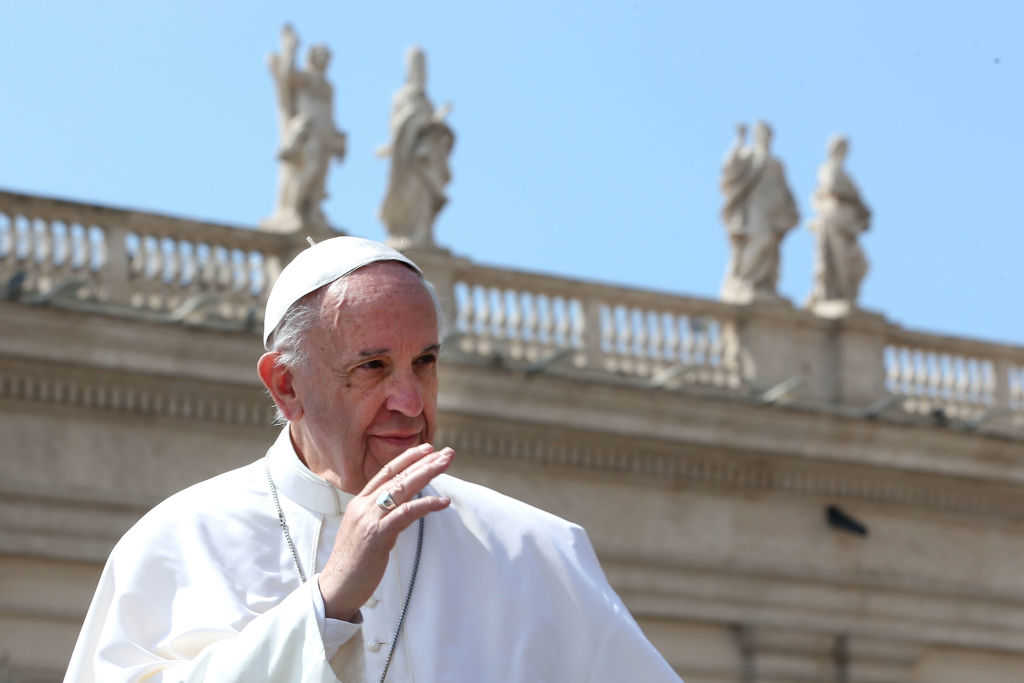The Catholic Church’s much-anticipated summit to discuss the sexual abuse scandal plaguing several high-ranking Church officials (including the recently defrocked Theodore McCarrick) began Thursday, with Pope Francis outlining 21 proposals for reform moving forward.
The pope noted that he formed the lengthy list from points addressed at multiple bishops’ conferences around the world, calling them “guidelines to assist in our reflection” during the four-day summit focusing heavily on the protection of minors in the Church.
Pope Stuns With Response to Church Sex Scandal, Blames ‘Great Accuser’ Satan
Speaking to journalists Thursday afternoon, Archbishop Charles Scicluna of Malta praised the points as a “roadmap” for upcoming discussions this weekend, the Catholic News Agency reported.
The points include suggestions like implementing universal procedures for examining abuse charges, creating handbooks for Church authorities that lay out how to address abuse claims, informing civil authorities and the higher Church authorities in compliance with civil and canonical norms and offering concrete support and treatment for victims of abuse. Point 19 suggests formulating “mandatory codes of conduct for all clerics, religious, service personnel and volunteers to outline appropriate boundaries in personal relationships,” establishing clear requirements for staff and volunteers and checking their criminal records.
Peter Isley, victim of clergy sexual abuse and a spokesperson for “End Clergy Abuse,” also spoke to journalists at the Vatican Thursday, criticizing the pope’s points as “not very concrete.”
“I’ll tell you what the roadmap in here is, it’s a circle,” he said, according to CNA.
Isley added that in his opinion, the reflection points don’t communicate the “zero tolerance” policy regarding abuse in the Church that many had hoped for.
“There is nothing there that wasn’t there yesterday,” he said, adding that priests who abuse their status should be removed from public ministry and immediately laicized, or stripped of their priestly status, as the disgraced Cardinal McCarrick recently was.
If you are a bishop, he continued, “you make very, very sure, that if your priest has assaulted a child, and you know he has, that he’s not going to harm a child in the Catholic Church ever, ever, ever again.”
Archbishop Scicluna noted during the press conference that the 21 points do in fact address this concern. He said, “punishment needs to take care of the common good, so they [clerics found guilty of sexual abuse of minors] cannot be in active ministry,” a reference to point 15, which says, “Decide that priests and bishops guilty of sexual abuse of minors leave public ministry.”
Notably absent from the 21 points is any explicit reference to the problem of homosexuality within the priesthood. The Church’s official policy is that men with “deep-seated homosexual tendencies” may not be admitted into the priesthood, which demands celibacy. Many allegations that have emerged amid the Church’s sexual abuse scandal involved young adult seminarians who were preyed upon by high-ranking clerics.
The summit will continue this weekend, ending Sunday, Feb. 24.



